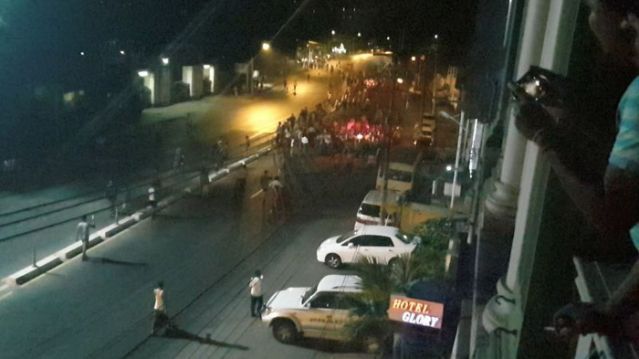
(Reuters) – Myanmar’s army reinstated a law requiring people to report overnight visitors to their homes, as police hunt supporters of protests that have rocked the country since a military coup on Feb. 1.
The amendment to the Ward or Village Tract Administration Law, announced late on Saturday on a military-run Facebook page, is the latest in a raft of legislative changes introduced by the army.
The former civilian government led by Aung San Suu Kyi, who has been detained alongside her cabinet, had repealed the requirement, a relic of decades of army rule.
Under the amendment, residents face a fine or imprisonment if they do not report guests to local authorities.
Myanmar’s junta on Saturday also suspended laws constraining security forces from detaining suspects or searching private property without court approval and ordered the arrest of well-known backers of mass protests against this month’s coup.
The coup has prompted the biggest street protests in more than a decade and has been denounced by Western countries, with the United States announcing some sanctions on the ruling generals and other countries also considering measures.
As anti-coup protests sprang up again in the biggest city Yangon, the capital Naypyitaw and elsewhere on Saturday, the army said arrest warrants had been issued for seven high profile critics of military rule over their comments on social media.
People should inform the police if they spot any of those named and will be punished if they shelter them, the army’s True News information team said in a statement.
The Assistance Association for Former Political Prisoners, a Myanmar monitoring group, said at least 384 people have been detained across the country since the coup, mostly in night raids.
Residents in major cities have formed patrol groups to defend themselves against the police and common criminals.






